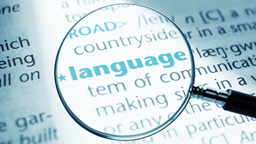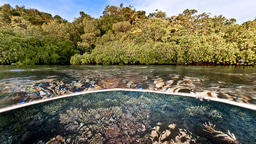Our new global plant water status database may prevent you from needing to fieldwork. What will you miss?
Published in Research Data

It is 6 am, the alarm clock rings. I open my eyes, switch on my brain and put it on ‘fieldwork day’ mode. I am excited that I will escape the office today with a friend to hang out in nature and collect my research data. However, I also know I have a long day ahead. I have to get ready, walk to uni, take the 4WD vehicle that I left fully packed with the fieldwork equipment the evening before, pick up my friend from home and drive for about four hours to get to my field site just before mid-day, so we hopefully have enough time to take 24 vegetation samples from 6 plots before 4 pm. It is mid-August in inland Spain. I know it is going to be dry and stinking hot, so we make sure we packed enough water and food as well as sun-protective clothing for a long day in the field. We also packed enough caffeine and good music, as we will need to drive back home after an intense day in the field. It is dark when I drop my friend back home and get back to uni, and late in the evening by the time I have weighed my samples and put them into the oven. I have a look at the car-sharing spreadsheet: no one booked the car for the day after so I will only need to unpack the most valuable piece of equipment, I can leave the rest for tomorrow. I will also give the car a good clean and fill in the tank tomorrow; I am too tired to do that now.
This is an average example of the effort involved to collect every single entry in Globe-LFMC data base. If you multiply this effort with the 1,383 sites and 161,717 individual records included in the database, you start to get a picture of the value of the data we published today.
Given the large cost of collecting field measurements of LFMC over large areas during long time periods, the compilation of this database capturing broad-scale spatial and temporal variability in LFMC would not have been feasible with the resources of a single researcher not even organization or research group.
We made an international effort to compile and share existing field observations in a global database to overcome a key constraint in terms of data availability for the improvement and validation of LFMC remote sensing methods at global scale. This effort did not have a deadline or any budget, so it took longer than we all wished it would. It still would not have been completed yet if it wasn’t for Gianluca Scortechini, who one day dropped by my office volunteering to help out with my team’s research. Thankfully, Gianluca enjoyed the arduous work of standardising and checking all the data entries. Now that hard work is done Gianluca has started his PhD research with our team, and will use the data for satellite-based global LFMC estimation, so stay tuned! Or use the database yourself, of course!
Follow the Topic
-
Scientific Data

A peer-reviewed, open-access journal for descriptions of datasets, and research that advances the sharing and reuse of scientific data.
Related Collections
With Collections, you can get published faster and increase your visibility.
Data for crop management
Publishing Model: Open Access
Deadline: Apr 17, 2026
Data to support drug discovery
Publishing Model: Open Access
Deadline: Apr 22, 2026





Please sign in or register for FREE
If you are a registered user on Research Communities by Springer Nature, please sign in